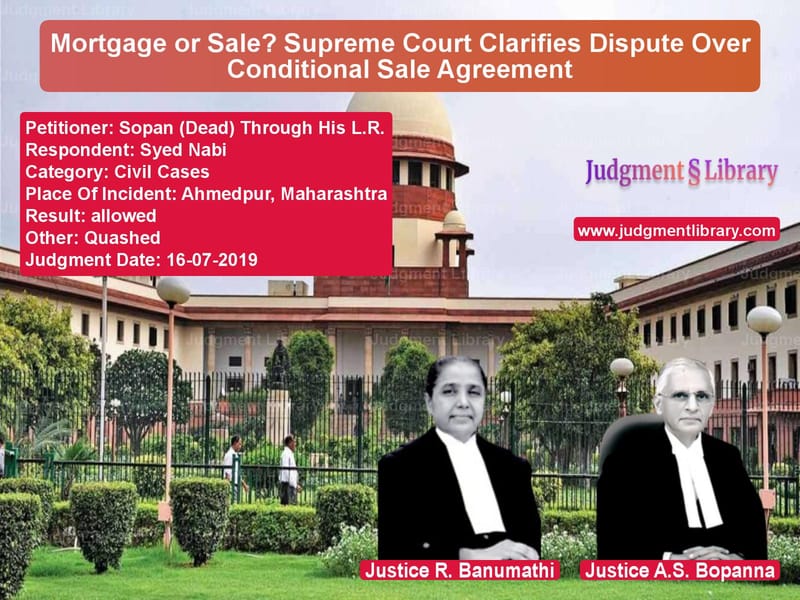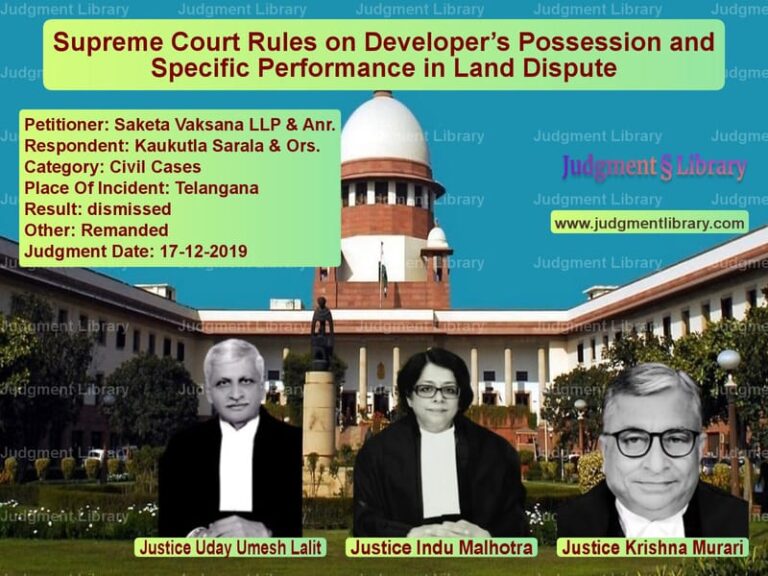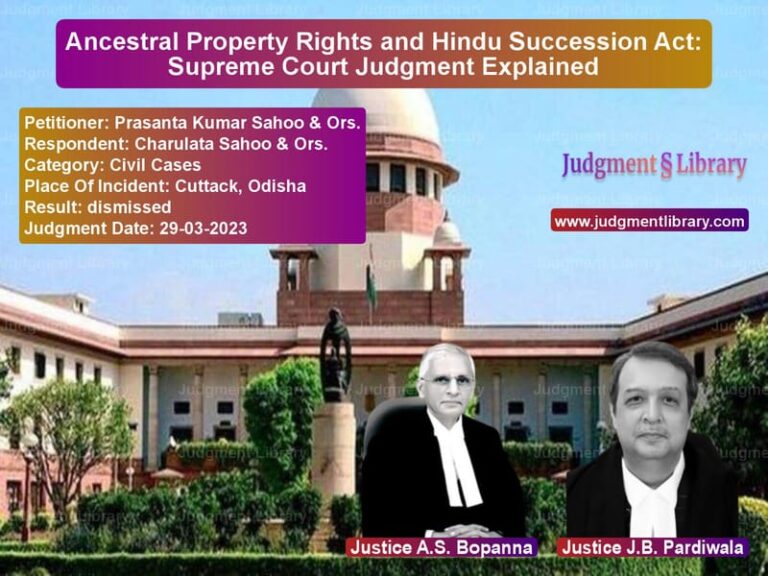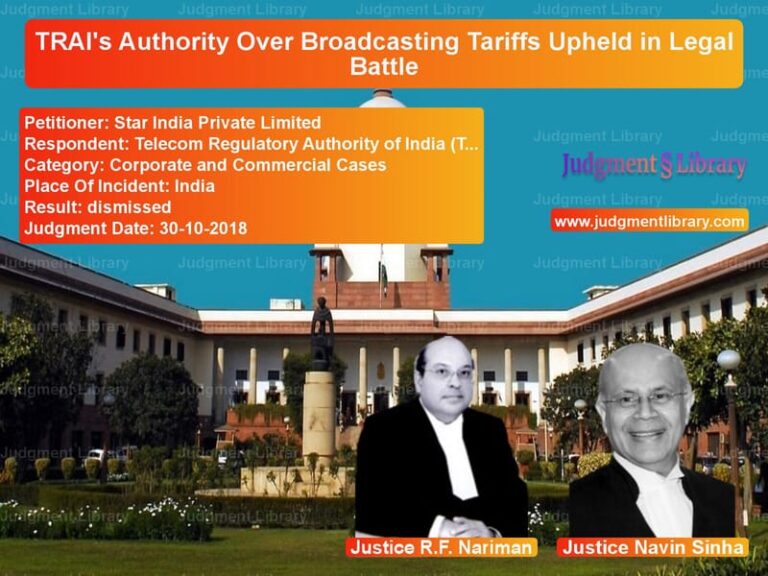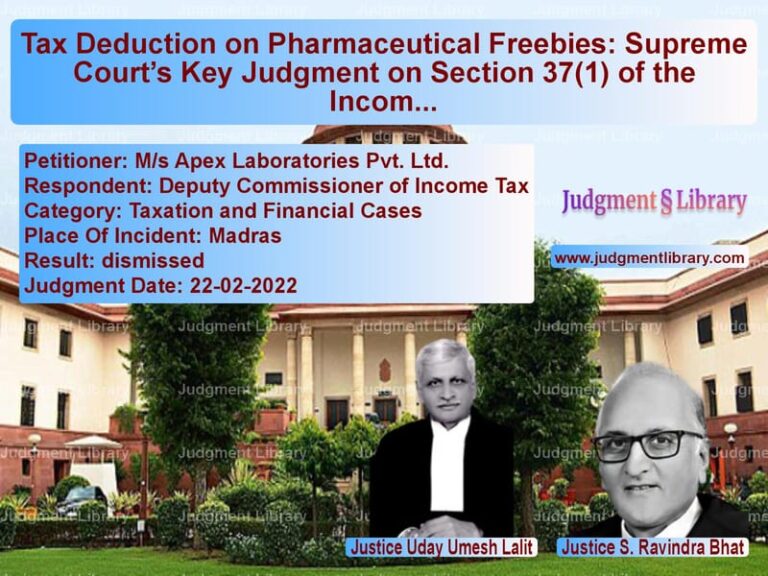Mortgage or Sale? Supreme Court Clarifies Dispute Over Conditional Sale Agreement
The case of Sopan (Dead) Through His L.R. v. Syed Nabi involves a legal dispute over the nature of a transaction—whether it was a mortgage by conditional sale or an outright sale with a reconveyance clause. The Supreme Court had to determine whether the sale deed executed in 1968 was a mortgage transaction or an absolute sale with an option for the seller to repurchase the land.
Background of the Case
The dispute arose when the plaintiff, Syed Nabi, filed Regular Civil Suit No. 237 of 1980 before the Civil Judge, Junior Division at Ahmedpur, seeking redemption of the mortgage and recovery of possession of the suit land situated in Survey No. 2/A, measuring 6 acres and 2 guntas.
The Civil Court ruled in favor of the plaintiff on 20 September 1984, holding that the transaction was a mortgage by conditional sale. The defendant, Sopan, appealed before the Additional District Judge, Latur, who overturned the trial court’s decision on 29 June 1990, treating the transaction as an outright sale.
Aggrieved, the plaintiff approached the Bombay High Court in Second Appeal No. 479 of 1991. The High Court ruled in favor of the plaintiff, restoring the trial court’s decree. The defendant then challenged the decision before the Supreme Court.
Petitioner’s Arguments
The defendant, Sopan, argued that:
- The sale deed dated 10 December 1968 was an outright sale and not a mortgage by conditional sale.
- The agreement dated 10 December 1968, relied upon by the plaintiff, was merely an option for reconveyance and did not create a mortgage.
- The plaintiff had failed to exercise his right of repurchase within the stipulated time, rendering the sale absolute.
- The revenue records and mutation proceedings had already recognized the defendant’s ownership, proving that the transaction was a sale.
Respondent’s Arguments
The plaintiff, Syed Nabi, countered that:
- The transaction was a mortgage by conditional sale, as per the agreement executed simultaneously with the sale deed.
- The defendant’s possession of the property was akin to that of a mortgagee and should have been terminated upon repayment.
- Under Section 58(c) of the Transfer of Property Act, the existence of an agreement for reconveyance indicated a mortgage.
- The trial court and High Court had correctly interpreted the transaction as a mortgage.
Supreme Court’s Observations
The Supreme Court analyzed Section 58(c) of the Transfer of Property Act, which defines a mortgage by conditional sale as a sale transaction subject to a condition for repurchase. The key findings were:
- The proviso to Section 58(c) states that for a transaction to be considered a mortgage, the condition for repurchase must be explicitly stated in the sale deed itself.
- The sale deed dated 10 December 1968 (Exhibit 23) did not contain any condition for repurchase.
- The agreement for reconveyance was a separate document and could not alter the nature of the sale deed.
- The transaction did not qualify as a mortgage because the condition for repurchase was not part of the original sale deed.
The Court noted:
“A sale with a mere condition for reconveyance is not a mortgage by conditional sale. If the sale and repurchase agreements are in separate documents, the transaction cannot be treated as a mortgage under Section 58(c) of the Transfer of Property Act.”
Final Judgment
The Supreme Court set aside the High Court’s judgment and restored the Additional District Judge’s decision, ruling that:
- The transaction was an outright sale and not a mortgage.
- The plaintiff had no right of redemption.
- The suit for redemption of mortgage was not maintainable.
Impact of the Judgment
This ruling clarifies the legal position on conditional sales and mortgages:
- A reconveyance agreement does not automatically convert a sale into a mortgage.
- Conditions for repurchase must be part of the sale deed to constitute a mortgage by conditional sale.
- Separate documents for sale and repurchase indicate an absolute sale with an option to buy back.
- Mutation entries support ownership claims but do not create title.
Conclusion
The Supreme Court’s judgment in this case establishes a crucial precedent for interpreting sale transactions involving reconveyance clauses. By distinguishing between mortgages by conditional sale and absolute sales with repurchase options, the ruling ensures that property transactions are assessed based on documentary evidence rather than oral claims. This decision will guide future disputes involving similar legal issues.
Petitioner Name: Sopan (Dead) Through His L.R..Respondent Name: Syed Nabi.Judgment By: Justice R. Banumathi, Justice A.S. Bopanna.Place Of Incident: Ahmedpur, Maharashtra.Judgment Date: 16-07-2019.
Don’t miss out on the full details! Download the complete judgment in PDF format below and gain valuable insights instantly!
Download Judgment: Sopan (Dead) Through vs Syed Nabi Supreme Court of India Judgment Dated 16-07-2019.pdf
Direct Downlaod Judgment: Direct downlaod this Judgment
See all petitions in Property Disputes
See all petitions in Specific Performance
See all petitions in Contract Disputes
See all petitions in Judgment by R. Banumathi
See all petitions in Judgment by A. S. Bopanna
See all petitions in allowed
See all petitions in Quashed
See all petitions in supreme court of India judgments July 2019
See all petitions in 2019 judgments
See all posts in Civil Cases Category
See all allowed petitions in Civil Cases Category
See all Dismissed petitions in Civil Cases Category
See all partially allowed petitions in Civil Cases Category

